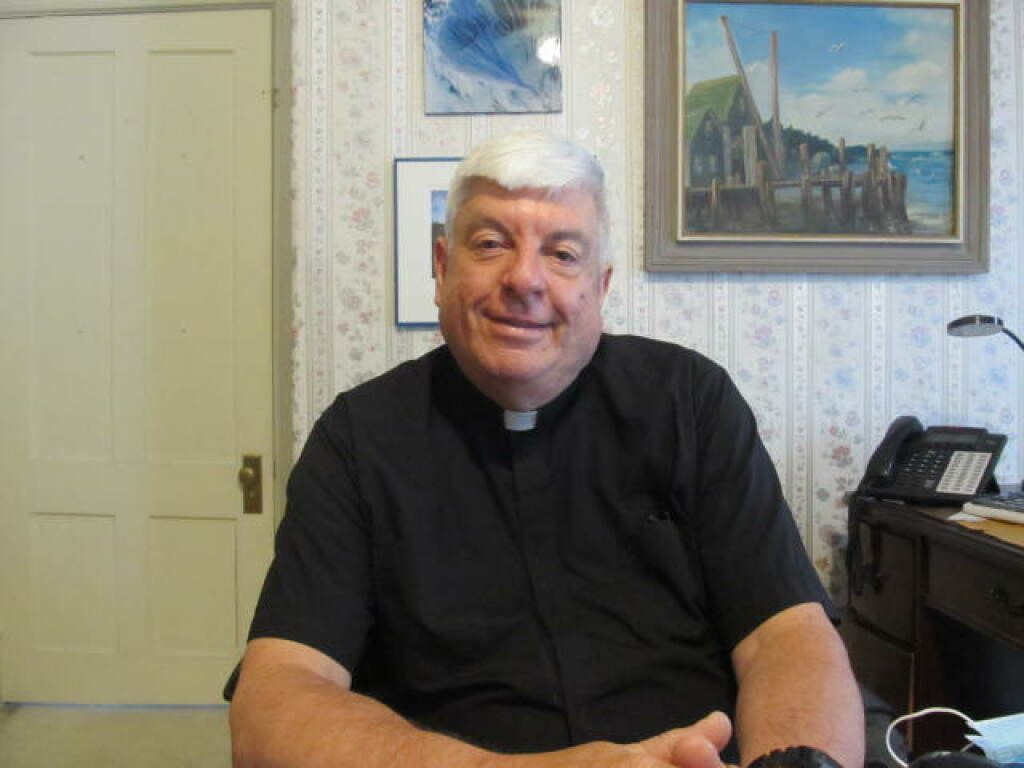 Previews of what’s to come
Previews of what’s to come
I have to admit that, when I used to read the beginning of our first reading, Genesis: 5-12, 17-18, I was not all that impressed. Our text for this Second Sunday of Lent has to do with the promises God made to Abram (later renamed Abraham): “Look up at the sky and count the stars, if you can. Just so, shall your descendants be.” I’ve always lived in areas where there is a lot of light pollution, which means that only a small fraction of stars are visible. Then on a camping trip to the western United States, we were at a relatively high altitude in an isolated corner of Idaho. Even though it was summer, the nighttime temperatures dipped into the 30’s, so the air was thinner and quite clear. And the area was so unpopulated that there was no light to compete with the light of the stars. I looked up, much as Abraham looked up, and saw our milky way in all its grandeur, like a ribbon of light across the night sky. Now with the use of very powerful telescopes, astronomers are saying that there are something like four hundred billion stars in the Milky Way. And beyond our home galaxy, there are billions upon billions of other galaxies out there. So the command to “count the stars if you can” now makes a lot of sense to me. It was quite a promise.
Our first reading describes the agreement between God and Abram as a sacred covenant in which both were pledging themselves to each other. The Hebrew word for the enactment of the covenant is “to cut”—to cut a covenant agreement. Here’s what the text says. God instructed Abraham, “Bring me a three-year-old heifer, a three-year-old she-goat, a three-year-old ram, a turtledove, and a young pigeon.” The passage continues, “Abram brought him all these, split them in two, and placed each half opposite the other; but the birds he did not cut up. Birds of prey swooped down on the carcasses, but Abram stayed with them. As the sun was about to set, a trance fell on Abram, and a deep, terrifying darkness enveloped him. When the sun had set and it was dark, there appeared a smoking fire pot and a flaming torch, which passed through those pieces. It was on that occasion that the Lord made a covenant with Abram, saying: ‘To your descendants I give this land, from the Wadi of Egypt to the Great River, the Euphrates.’”
The word to cut a covenant refers to the animals being cut in half and the parties of the agreement passing through them, symbolizing a ratification in blood that bound the parties to the specifics of the pact. Abram bound himself in allegiance to God, and God promised both land and numerous descendants, as many as the stars of the sky, if they could possibly be counted.
Our Gospel reading for this Second Sunday of Lent, Luke 9:28-36, is the account of the Transfiguration. Jesus takes his inner circle of those closest to him, Peter, John and James, and leads them up a high mountain. “While he was praying his face changed in appearance and his clothing became dazzling white. And behold, two men were conversing with him, Moses and Elijah, who appeared in glory and spoke of his exodus that he was going to accomplish in Jerusalem.” What we find here might be called a preview of coming attractions. Jesus, knowing that the horrible days of humiliation, suffering and crucifixion were fast approaching, wanted to give his disciples the reassurance that it was all in the hands of God. Jesus appears, if only momentarily, in his divine glory. And by including in the vision the ancient figures of Jewish history, Luke is showing that Jesus now inherits and surpasses both the law (Moses) and the prophets (Elijah) that came before him.
Next, we find that Peter, overwhelmed at the sight, is overcome in ecstasy, and doesn’t really know how to process it or what to do with it. So, he wants to hang on to it. “Master, it is good that we are here; let us make three tents, one for you, one for Moses, and one for Elijah.” Then, the revelation continues. “From the cloud came a voice that said, ‘This is my chosen Son; listen to him.’ After the voice had spoken, Jesus was found alone.”
This passage points to the events that will happen in Jerusalem. God will enter a new and everlasting covenant that will be sealed, not with the blood of animals, but with the blood of God’s own beloved Son, Jesus Christ. And the blessing received in this covenant is neither land nor descendants, but eternal life. Thus, these readings are meant to fill us with anticipation as we look to our annual celebration of Jesus life-giving death and resurrection during the Easter Triduum, the three glorious days, from Good Friday to Easter Sunday, that made us people of the new covenant with an eternal destiny.
You might also like
Father's Homilies




